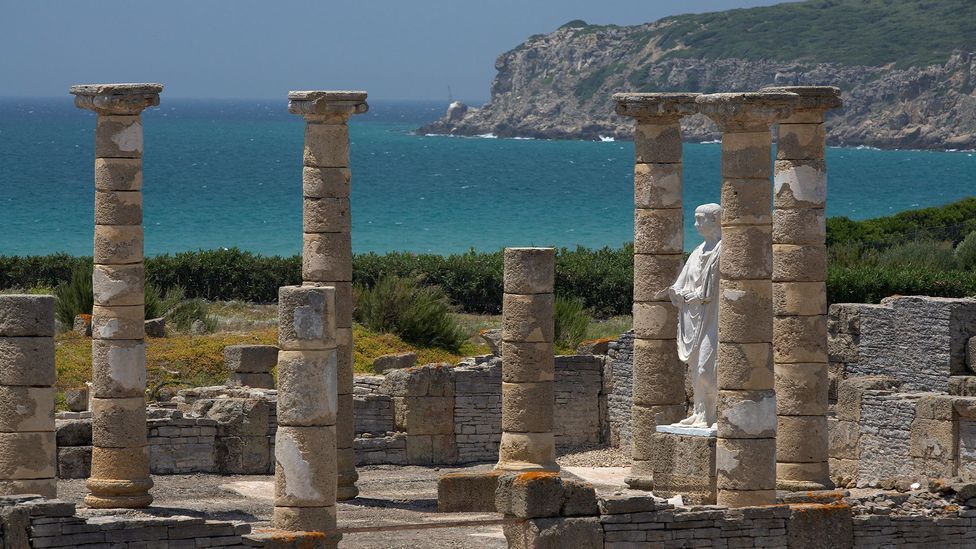Duna de Bolonia: The Spanish sand dune hiding Roman ruins
Article continues below
Near the southern tip of Spain's Cádiz province, where Europe lunges into the Strait of Gibraltar as if reaching out for the North African coast, the Duna de Bolonia is one of the continent's largest sand dunes. Rising more than 30m high and sprawling 200m wide, the white mound spills into the azure sea and appears as if someone has dumped a massive pile of sugar atop the surrounding Estrecho Nature Park's protected green forest.
Like all sand dunes, Bolonia is a constantly moving ecosystem that shifts with the winds. But as climate change has intensified the hurricane-force gusts coming from the east, the dune has increasingly migrated inland towards the ecologically important cork and pine forests and scrubland – revealing remnants of the many past cilivilisations who have passed through here in the process.
In recent years, archaeological excavations have identified ancient burial tombs that were once hidden deep within the dune's depths. Experts aren't sure just how many chambers lie underneath, but because the sand has helped to preserve bones and the structure's foundation, the necropolis remains remarkably intact, yielding artefacts like jewellery and arrowheads.
Nearby, the Baelo Claudia archaeological site dates to the 2nd Century BCE and is one of Spain's best-preserved Roman settlements. Complete with ancient baths, a theatre, temple, forum, aqueducts and sweeping views towards Morocco, the site was built atop a previous Phoenician settlement and was one of the empire's major sources of garum fish sauce production. After a 3rd-Century CE earthquake, the settlement was gradually abandoned, only to be discovered many centuries later under the sand.
As the winds continue to shape and shift this unique landscape, historians are hopeful that Bolonia will remain protected and keep revealing more of its secrets for future generations.
---
For more on this and other stories, watch BBC's The Travel Show – every weekend on the BBC News Channel and BBC World News.

No comments:
Post a Comment